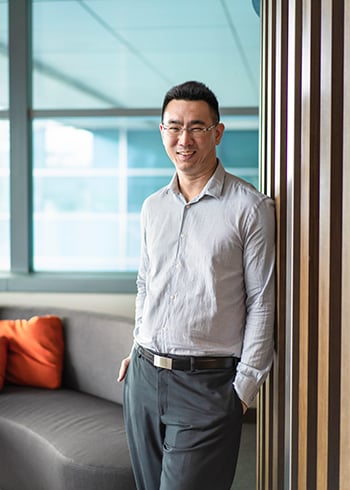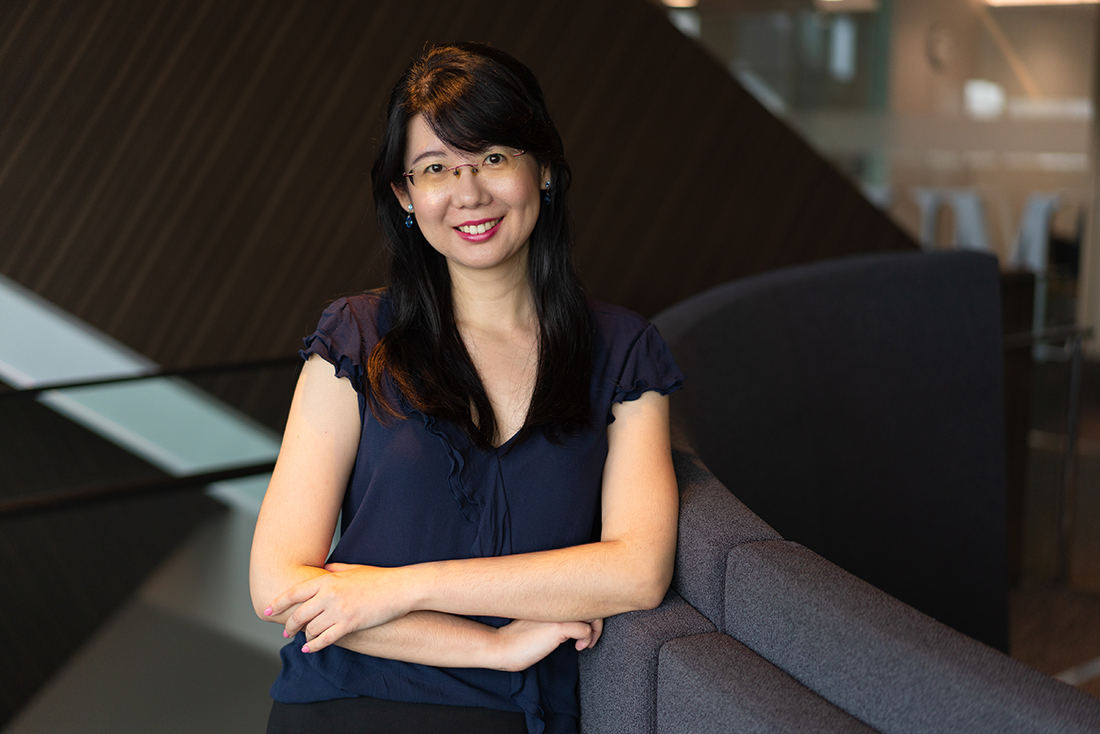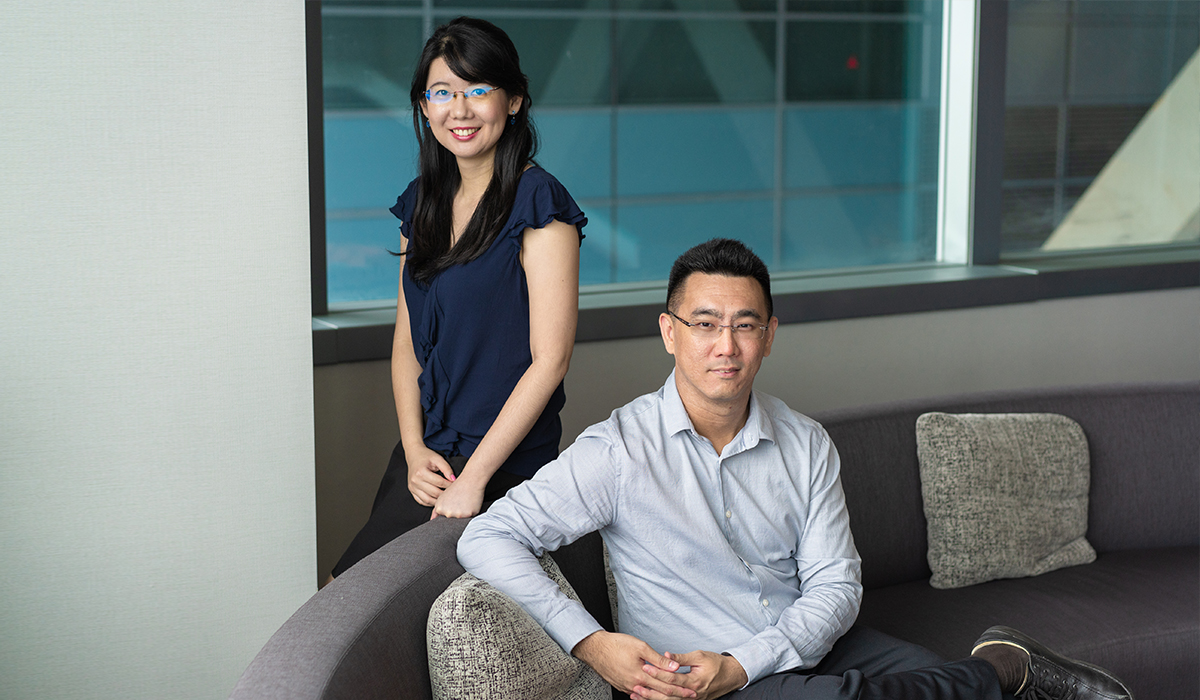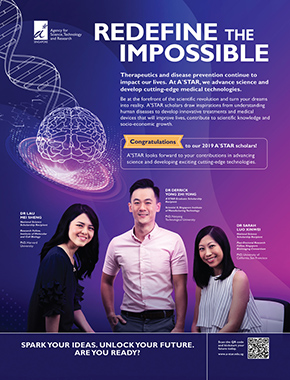AAdvances in science and technology have the immense potential to improve lives and fuel economic growth. In Singapore, the Agency for Science, Technology and Research (A*STAR) has made it their mission to pursue these advances. Besides paving the way for established names in research, A*STAR also seeks to nurture new talent, continuously bridging the gap between academia and industry in terms of research and development. We caught up with Dr Yang Le, 30, and Dr Andy Ng, 33, recipients of the National Science Scholarship, who are now pursuing two very different—but equally exciting—fields of research.
What was your motivation for applying for the National Science Scholarship?
Yang Le: I have always had a keen interest in
the sciences and wanted to pursue a scientific
career. The National Science Scholarship BSPhD
scholarship in Singapore is one of the most
prestigious and incentivised sponsorships for this
path, especially for overseas studies. There is also a
decent range of career development opportunities
within the A*STAR framework to choose from after
we return.
Andy: I’ve always enjoyed learning about science,
but it was only during secondary school, when I had
the opportunity to take part in a research project
that I learned what a research career could entail –
frequent failed experiments and the rare satisfaction
of creating new knowledge that can benefit society.
It was a logical choice to apply for the A*STAR
National Science Scholarship, which offered me a
chance to pursue a career in Science all the way to a
PhD and beyond.

Dr Andy Ng Yao Zong
National Science Scholarship (BS-PhD)
Research Fellow, Biotransformation
Innovation Platform (BioTrans)
PhD in Synthetic Biology and
Metabolic Engineering
– Columbia University
Bachelor of Arts in Natural Sciences
(Biochemistry)– University of Cambridge
What are the career and development opportunities you’ve enjoyed thanks to the scholarship?
Yang Le: The scholarship has allowed
me to choose from a rich community
of frontier scientists to work with
and institutions to study in, from
undergraduate to post-doctoral level.
The scholarship also provided generous
opportunities for us budding researchers
in raising visibility, increasing exposure,
establishing network, and gaining
insight and foresight in our career.
Andy: The A*STAR National Science
Scholarship provided me with the
opportunity to study abroad and
broaden my horizons. This unique
experience allowed me to encounter
diverse opinions, develop critical
thinking skills, and build a network
that can help to support future career
development, as well as seed potential
international collaborations.
How has A*Star empowered your research?
Yang Le: With ample scholarship
support to aid my research journey
during my post-graduate years, I was
able to immerse myself amongst the
brightest brains in the world. I joined
Professor Sir Richard H Friend’s
group for optoelectronics work – I
found myself standing among giants
in the field and was introduced to
the frontiers of novel optoelectronics
and plastic electronics. My scientific
breakthrough came during this
experience, and having done impactful
work is certainly empowering.
Andy: After completion of my PhD,
I joined the Biotransformation
Innovation Platform (BioTrans), which
is a young research initiative under the
Food, and Consumer (FNC) cluster at
A*STAR. The research that is performed
in BioTrans is highly interdisciplinary,
which has allowed me the chance to
collaborate with and learn from experts
in different fields. BioTrans – and
indeed A*STAR in general – encourages
close engagement with industry
partners, which helps in translating
research outcomes into practical
applications that can benefit society.

Dr Yang Le
National Science Scholarship
(BS-PhD)
Scientist I, Institute of
Materials Research and
Engineering (IMRE)
PhD in Optoelectronics,
Physics – University of
Cambridge
Bachelor of Science
(Chemistry), 1st Class Honours
– Imperial College London
Tell us more about the crux of your current research. How will it impact society?
Yang Le: I am now part of a large
team (from the Institute of Materials
Science & Engineering (IMRE) and
other research faculties) working on
developing smart biomedical sensors.
They are for specific biomarkers, primed
for next-generation healthcare devices
and wearable electronics. We hope
to establish our sensors as platform
technologies and integrate them into
practical prototypes for different
healthcare needs. I am also working
with luminescent materials, exploiting
and controlling their photophysical
properties for various applications. I
hope my research topics can eventually
translate into useful components in
Smart Living.
Andy: My research focuses on
harnessing yeast cells for the production
of high value flavour and fragrance
compounds. Baker’s yeast has proven
to be a safe organism, having been
used by mankind for centuries for the
production of beer, wine, and bread.
Recently, yeasts have been engineered to
produce other useful chemicals such as
biofuels and medicines. Building upon
these tools and techniques, my research seeks
to engineer yeast to produce high-value flavours
and fragrances. This method of production is a
green and sustainable alternative compared to
existing chemical synthesis methods.
Any advice for students who want to pursue a scholarship and career with A*Star?
Yang Le: I am a staunch supporter of young
minds going into STEM fields. Don’t feel
confined by certain stereotypical impressions.
I hope girls in particular wouldn’t feel
intimidated by the pursuit of the physical
sciences and engineering. Pursue what
interests you; what stimulates and excites
you; what is intellectually challenging and
rewarding for you. Scientific and research
career is a long journey we embark on, we never
know what we will encounter along the way –
be patient for what’s to come!
Andy: There is no single recipe for success,
but I think that it is important to always
keep an open mind and to be flexible to be
able to recognise and seize on opportunities
for development. The mission of A*STAR is
to drive innovative science that can benefit
society-at-large and contribute to Singapore’s
economic growth. It is thus important that
research efforts should aim to solve important
problems and be directed towards producing
tangible outcomes.


